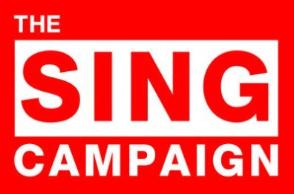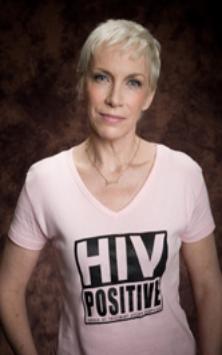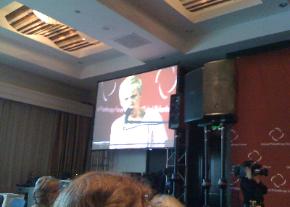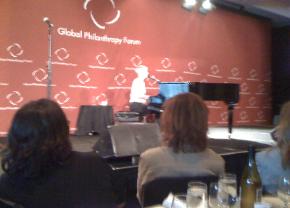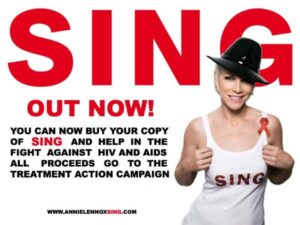
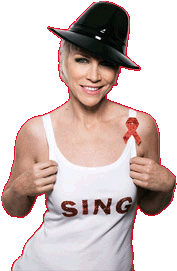
Annie Lennox was one of the featured speakers at this year’s Global Philanthropy Forum held in Redwood City, California on April 9-11, 2008. Fresh from her emotional appearance on the American Idol Gives Back charity concert, Annie spoke about the SING project and also gave a heartfelt musical performance. Following are some of the highlights of the evening as well as audio of Annie’s speech and performance to the assembled audience of dignitaries, humanitarians and concerned citizens.

